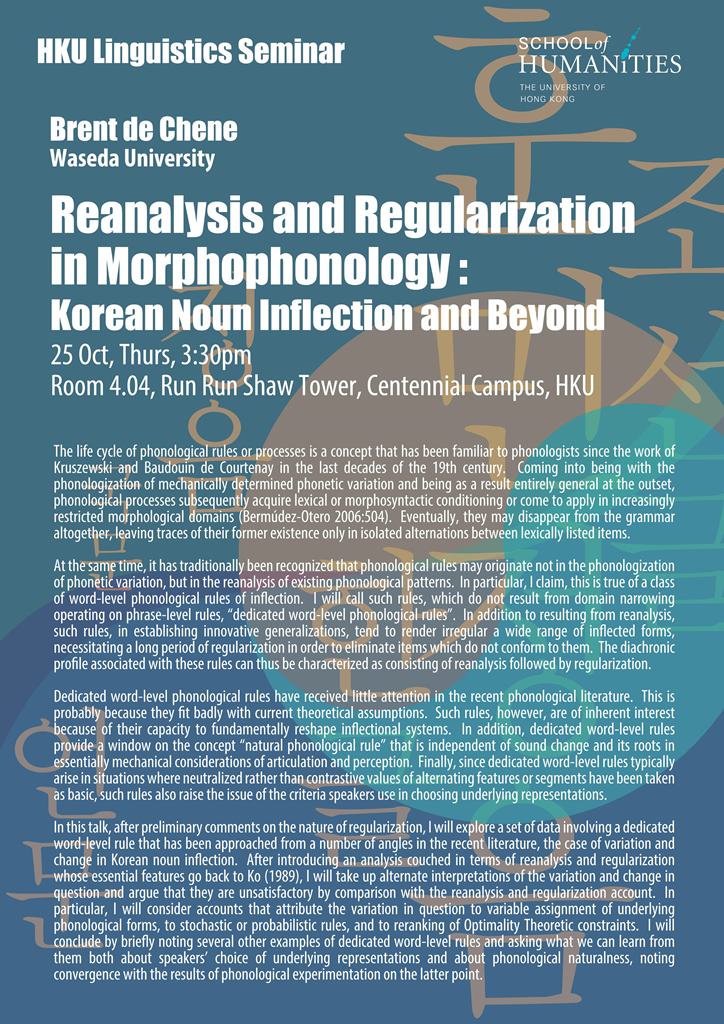

Reanalysis and Regularization in Morphophonology: Korean Noun Inflection and Beyond – Brent de Chene (Waseda University)
October 25, 2018 @ 3:30 pm - 5:00 pm
Abstract:
The life cycle of phonological rules or processes is a concept that has been familiar to phonologists since the work of Kruszewski and Baudouin de Courtenay in the last decades of the 19th century. Coming into being with the phonologization of mechanically determined phonetic variation and being as a result entirely general at the outset, phonological processes subsequently acquire lexical or morphosyntactic conditioning or come to apply in increasingly restricted morphological domains (Bermúdez-Otero 2006:504). Eventually, they may disappear from the grammar altogether, leaving traces of their former existence only in isolated alternations between lexically listed items.
At the same time, it has traditionally been recognized that phonological rules may originate not in the phonologization of phonetic variation, but in the reanalysis of existing phonological patterns. In particular, I claim, this is true of a class of word-level phonological rules of inflection. I will call such rules, which do not result from domain narrowing operating on phrase-level rules, “dedicated word-level phonological rules”. In addition to resulting from reanalysis, such rules, in establishing innovative generalizations, tend to render irregular a wide range of inflected forms, necessitating a long period of regularization in order to eliminate items which do not conform to them. The diachronic profile associated with these rules can thus be characterized as consisting of reanalysis followed by regularization.
Dedicated word-level phonological rules have received little attention in the recent phonological literature. This is probably because they fit badly with current theoretical assumptions. Such rules, however, are of inherent interest because of their capacity to fundamentally reshape inflectional systems. In addition, dedicated word-level rules provide a window on the concept “natural phonological rule” that is independent of sound change and its roots in essentially mechanical considerations of articulation and perception. Finally, since dedicated word-level rules typically arise in situations where neutralized rather than contrastive values of alternating features or segments have been taken as basic, such rules also raise the issue of the criteria speakers use in choosing underlying representations.
In this talk, after preliminary comments on the nature of regularization, I will explore a set of data involving a dedicated word-level rule that has been approached from a number of angles in the recent literature, the case of variation and change in Korean noun inflection. After introducing an analysis couched in terms of reanalysis and regularization whose essential features go back to Ko (1989), I will take up alternate interpretations of the variation and change in question and argue that they are unsatisfactory by comparison with the reanalysis and regularization account. In particular, I will consider accounts that attribute the variation in question to variable assignment of underlying phonological forms, to stochastic or probabilistic rules, and to reranking of Optimality Theoretic constraints. I will conclude by briefly noting several other examples of dedicated word-level rules and asking what we can learn from them both about speakers’ choice of underlying representations and about phonological naturalness, noting convergence with the results of phonological experimentation on the latter point.
